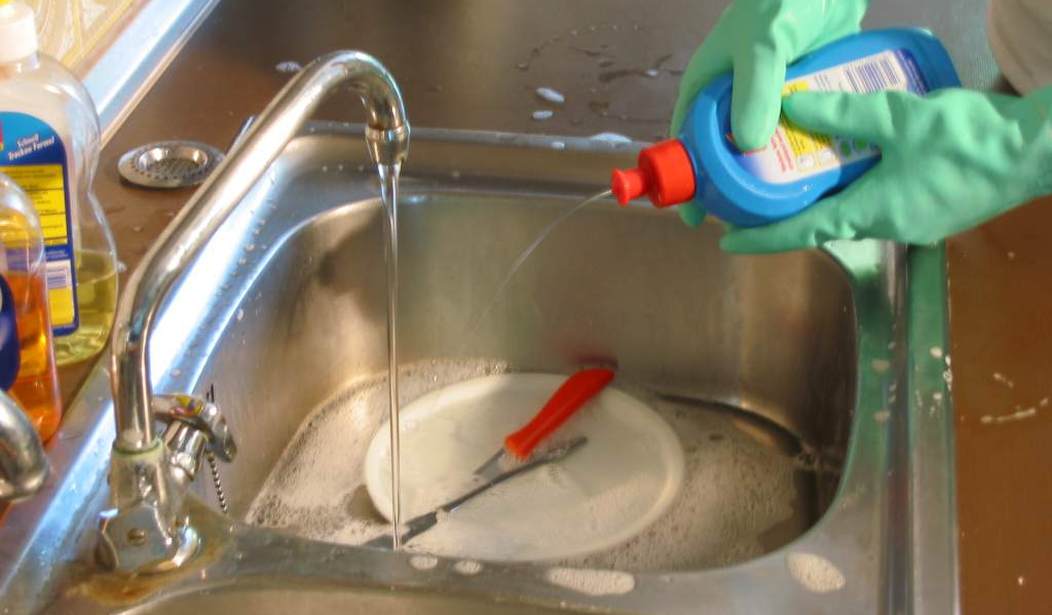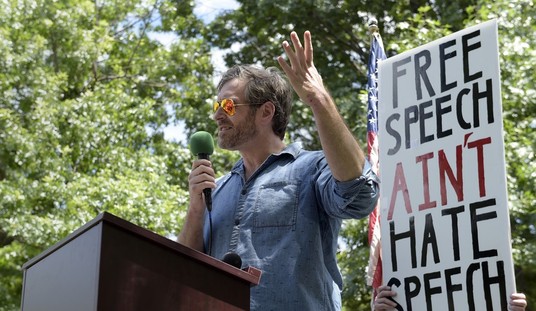Acting like he was fostering a robust debate on surveillance before NSA contractor Edward Snowden’s leaks about PRISM, President Obama announced a four-point plan to make Americans “more comfortable” with the idea of data collection.
In fact, he compared this new trust-building initiative to dishwashing.
“If I tell Michelle that I did the dishes — now, granted, in the White House I don’t do the dishes that much,” Obama said at a press conference Friday afternoon in an otherwise deserted Washington. “But back in the day — and she’s a little skeptical. Well, I’d like her to trust me, but maybe I need to bring her back and show her the dishes. And not just have her take my word for it.”
“And so, you know, the program is — I am comfortable that the program currently is not being abused,” he continued.
“I am comfortable that if the American people examined exactly what was taking place, how it was being used, what the safeguards were, that they would say, you know what, these folks are following the law and doing what they say they’re doing.”
Obama opened the hourlong press conference by lamenting that “rather than an orderly and lawful process to debate these issues and come up with appropriate reforms, repeated leaks of classified information have initiated the debate in a very passionate, but not always fully informed way.”
“Now, keep in mind that as a senator I expressed a healthy skepticism about these programs,” he said. “And as president, I’ve taken steps to make sure that they have strong oversight by all three branches of government and clear safeguards to prevent abuse and protect the rights of the American people.”
The president said he’d asked the Privacy and Civil Liberties Oversight Board “to review where our counterterrorism efforts and our values come into tension,” and “directed my national security team to be more transparent and to pursue reforms of our laws and practices.”
He announced “four specific streps, not all-inclusive” to “move the debate forward.”
Those include working with Congress to weigh reforms to Section 215 of the Patriot Act and working with Congress “to improve the public’s confidence in the oversight conducted by the Foreign Intelligence Surveillance Court.”
“So specifically we can take steps to make sure civil liberties, concerns, have an independent voice, in appropriate cases, by ensuring the government’s position is challenged by an adversary,” he said.
The third step includes more declassifications, including “the legal rationale for the government’s collection activities under Section 215” and the NSA’s establishment of a full-time “civil liberties and privacy officer.”
“The intelligence community is creating a website that will serve as a hub for further transparency,” Obama declared. “This will give Americans and the world the ability to learn more about what our intelligence community does and what it doesn’t do, how it carries out its mission and why it does so.”
The fourth step will be yet another independent review board.
“We’re forming a high-level group of outside experts to review our entire intelligence and communications technologies. We need new thinking for a new era. We now have to unravel terrorist plots by finding a needle in a haystack of global telecommunications. And meanwhile, technology has given governments, including our own, unprecedented capability to monitor communications,” Obama said.
“So all these steps are designed to ensure that the American people can trust that our efforts are in line with our interests and our values,” he continued. “And to others around the world, I want to make clear, once again, that America is not interested in spying on ordinary people. Our intelligence is focused above all on finding the information that’s necessary to protect our people — and in many cases, protect our allies.”
“So this is how we’re going to resolve our differences in the United States, through vigorous public debate guided by our constitution, with reverence for our history as a nation of laws, and with respect for the facts.”
Obama was asked whether his announcement of NSA-related reforms meant that Snowden’s leaks had essentially forced his hand — and changed his opinion on whether the contractor is a whistleblower.
“I don’t think Mr. Snowden was a patriot. As I said in my opening remarks, I called for a thorough review of our surveillance operations before Mr. Snowden made these leaks,” he said. “My preference, and I think the American people’s preference, would have been for a lawful, orderly examination of these laws; a thoughtful fact-based debate that would then lead us to a better place.”
Privacy-advocate lawmakers have contended that their requests for information about programs were stonewalled and concerns weren’t heard before the Snowden leaks.
“Because I never made claims that all the surveillance technologies that have developed since the time some of these laws had been put in place, somehow didn’t require potentially some additional reforms. That’s exactly what I called for,” Obama continued.
He acknowledged “there’s no doubt that Mr. Snowden’s leaks triggered a much more rapid and passionate response than would have been the case if I had simply appointed this review board to go through, and I’d sat down with Congress, and we had worked this thing through.”
“It would have been less exciting; it would not have generated as much press,” the president said. “I actually think we would have gotten to the same place and we would have done so without putting at risk our national security and some very vital ways that we are able to get intelligence that we need to secure the country.”
Rep. Peter King (R-N.Y.) quickly accused Obama of capitulating to Snowden with his press conference.
“The president’s announcement today that he will pursue ‘reforms’ to National Security Agency counterterrorism programs is a monumental failure in presidential wartime leadership and responsibility. These programs are legal, transparent and contain the appropriate checks and balances among the executive, legislative and judicial branches of our government. These intelligence tools keep Americans safe every single day,” King said.
“America is at war with Islamist terror groups that kill and maim innocent civilians. The current threat to the Homeland is just as high as it was before 9/11. It is difficult to imagine past war leaders such as Franklin Roosevelt or Winston Churchill willingly surrendering signals intelligence tools that are needed to fight our enemies. We need a president who defends our intelligence programs, explains them appropriately to the American people, and uses every legal capability in his arsenal to defeat al-Qaeda.”
“The president today made clear what we have been saying for several weeks, that we will continue to work through the August recess on proposals to improve transparency and strengthen privacy protections to further build the confidence of the American public in our nation’s counterterrorism programs,” said House Intelligence Committee Chairman Mike Rogers (R-Mich.).









Join the conversation as a VIP Member